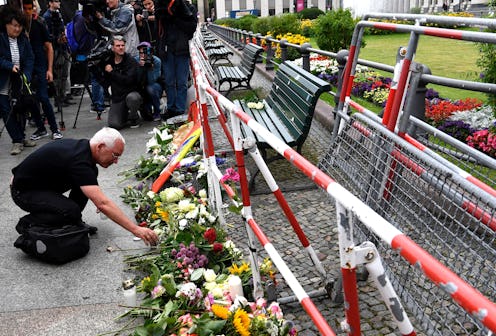News
Nice Attack Conspiracy Theories Need To Stop
On Thursday night, a Bastille Day celebration in Nice, France took a tragic turn when a lorry-truck plowed through a crowd gathering at the Promenade des Anglais, killing at least 84 people. There was not too much available information immediately following the incident, prompting many to jump to their own conclusions. Following Thursday's events, some took to the internet to share conspiracy theories of the Bastille Day attack that should probably not be circulating — for various reasons.
One website suggested that the number of casualties of a truck crashing through a crowd seems improbable. They also questioned how the driver was able to access the Promenade, especially given the country's State of Emergency measures and a likelihood of heightened security due to the celebrations. One person took to Twitter to suggest that it's strange that a Bastille Day movie was released this year, and ask, now there's an attack, "Coincidence? Conspiracy theory?"
Another website suggested that the incident was predicted weeks ago by "Light of Mary." They wrote, "Pray for Europe, it will be prey to terrorism." However, the theory falls flat either way, because the Islamic State reportedly called for attacks across Europe in the wake of the Brexit vote. Some redditors suggested that the timing of the attack seemed "like a strange coincidence," specifically because the day of the attack, French President François Hollande said the country's "State of Emergency" would be lifted on July 26. Many implied that it was an "inside job" and was politically motivated to further an airstrike campaign on Raqqah, Syria.
It's certainly OK to ask questions any time an act of violence occurs. We should ask, who is responsible? And why? And we should ask, who will be affected in the aftermath? We should ask, why do our political leaders respond so quickly and hawkishly to this kind of incident?
It can be harmful to engage in and spread theories about what may have occurred, however, and it is also harmful to jump to conclusions about who committed an act of violence and why.
